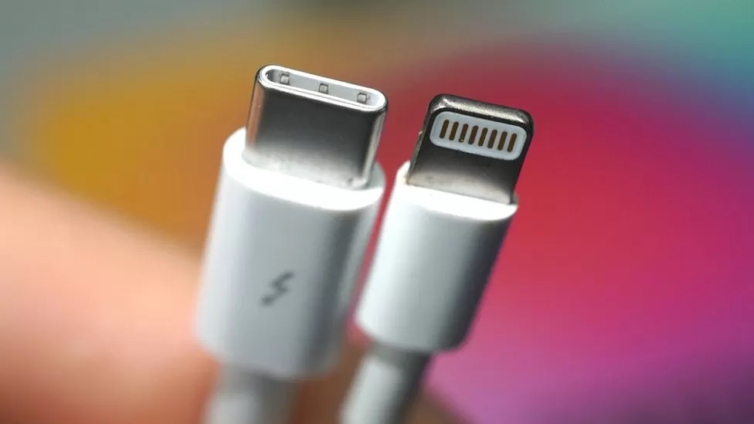Apple's latest iPhone will almost certainly feature a USB-C charge point when it is unveiled on 12 September.
The firm's phones currently use its proprietary Lightning adaptor, unlike rivals, including Samsung.
A European Union law requires phone manufacturers to adopt a common charging connection by December 2024 to save consumers money and cut waste.
Most new Apple products such as the latest iPads already use USB-C, but the firm had argued against the EU rule.
When it was introduced in September 2021, an Apple representative told BBC News: "Strict regulation mandating just one type of connector stifles innovation rather than encouraging it, which in turn will harm consumers in Europe and around the world."
Lightning to USB-C adaptors are already available from other electronics brands including Amazon, and all iPhones since the iPhone 8 which launched in 2017 have supported wireless charging.
As the current iPhone 14 now looks to be the last Apple device to exclusively use it, this could mark the beginning of the end of the Lightning cable - which retails on the Apple store for £19.
It's unclear whether this will be a global change to the product, although the tech giant is less likely to make a different version of the handset for the European market alone.

The changes are anticipated in the new iPhone 15 and iPhone 15 Pro devices which are set to be unveiled next week at the firm's annual autumn event.
According to a report by Bloomberg news, benefits of the switch for users will include customers being able to use a single charger for iPads, Macs and iPhones, as well as faster download speeds.
The EU common-charger rule covers a range of "small and medium-sized portable electronics", according to the EU, including:
- mobile phones
- tablets
- e-readers
- mice and keyboards
- GPS (global positioning system) devices
- headphones, headsets and earphones
- digital cameras
- handheld videogame consoles
- portable speakers.
Any of these charged using a wired cable will have to have a USB Type-C port, regardless of who makes the devices.
Laptops will also have to abide by the rules but manufacturers have longer to make the changes.
According to the EU, it will save consumers "up to €250m [£213m] a year on unnecessary charger purchases" and cut 11,000 tonnes of waste per year.
Latest Stories
-
COCOBOD intensifies crackdown on cocoa smuggling syndicates
47 seconds -
Ejisu By-election: Don’t condemn EC officials before content of ‘bribe’ envelope is established- Dr Serebour Quaicoe
31 mins -
Ghana’s first Kente Culture Story Documentary Film takes centre stage abroad
35 mins -
10 AI tools to enhance your school, personal or work life
55 mins -
WAEC reacts to private schools’ threat to boycott BECE, WASSCE over exorbitant charges
56 mins -
Reception given Bawumia in the Eastern region depicts victory – Jeff Konadu
1 hour -
GPL: ‘Going to Manhyia was good for the team’ – Ogum on Kotoko’s rejuvenated form
1 hour -
Ejisu by-election: NPP MP for Kwadaso, Kingsley Nyarko fingered in alleged electoral malpractice
1 hour -
Court instructs Anas to testify in person unmasked against Nyantakyi or case will be dismissed
2 hours -
Ghana takes on 7 other countries in a battle for best indigenous cuisine in Africa
2 hours -
Seidu Rafiwu finishes four-day walk-a-thon from Techiman to Accra
2 hours -
NPA increases price floor for petrol to GH¢13.63; diesel unchanged at GH¢13.07
2 hours -
How I lost my ring on my wedding day
2 hours -
Ejisu by-election: EC withdraws 2 temporary staff over suspected bribery caught on camera
2 hours -
Put more comedians on your shows – Percy Obrempong
2 hours

